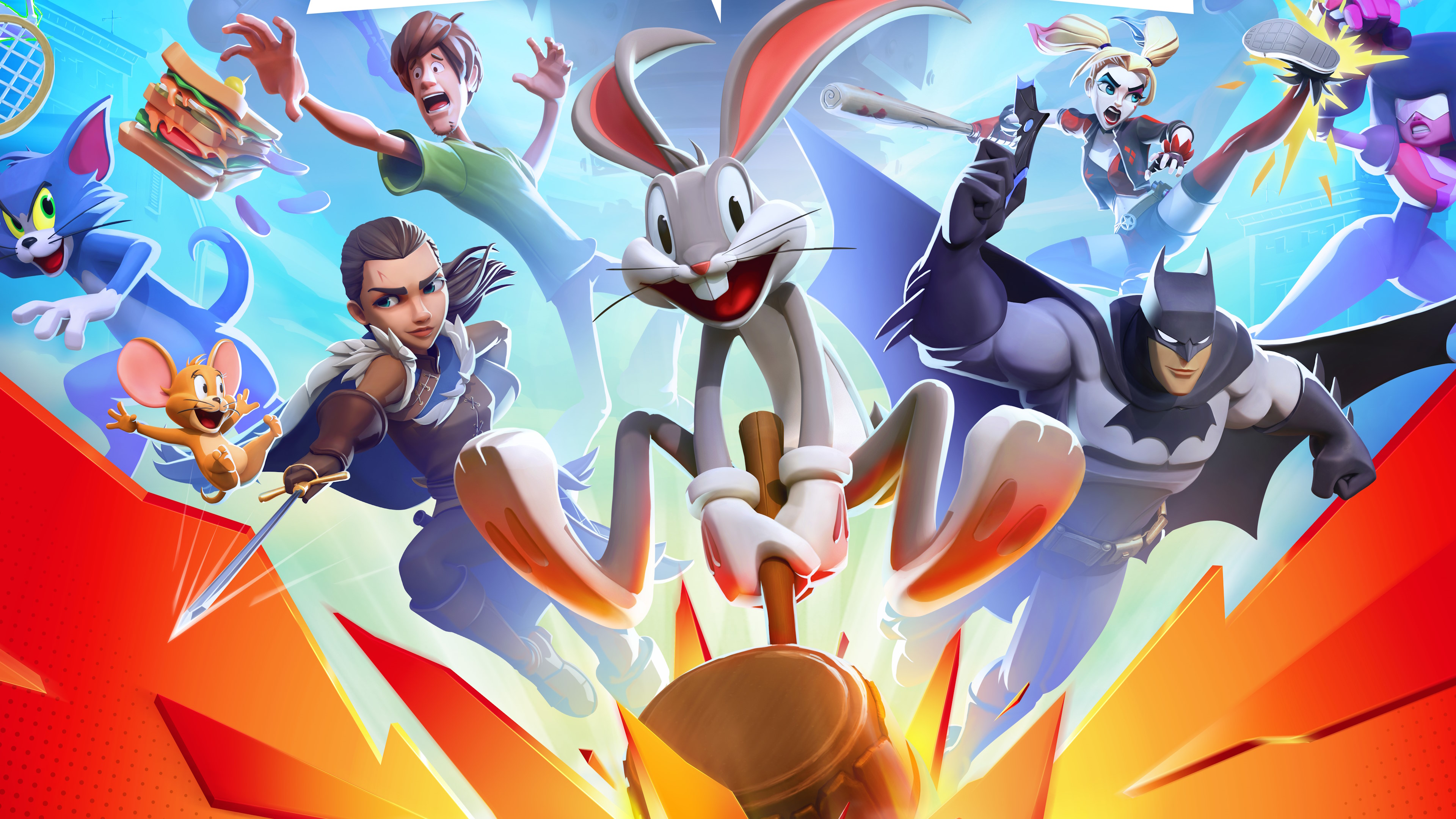Things look grim for Multiversus as the Warner Bros. suits blame it for a $100 million writedown—'It hasn't been pretty'
Meanwhile the game will soon let all fighters be earned for free.

"Hey, kid—Psst! Ya wanna buy some… um, some kinda Smash Bros.-style brawler with a buncha cartoon characters? How about a live service Harley Quinn game? Where ya goin' kid, hey kid I'm talking!" So goes the first scene of my unpublished script "Warner Bros. has a rough 2024 in games," which opens with panicked crowds fleeing the WB executive suites while the suits pursue, their pockets bulging with unsold pre-order bonuses.
Suicide Squad may be the poster child, with WB Games chalking up an eye-watering $200 million loss to the game, but it now turns out the whole Multiversus saga is responsible for another huge dent in the balance sheet.
On a recent call discussing the company's results, Warner Bros. Discovery president and CEO David Zaslav and chief financial officer Gunnar Wiedenfels said that the $200 million writedown is now a $300 million writedown, and laid the blame squarely on Multiversus.
"We took another $100 million plus impairment due to the underperforming releases, primarily MultiVersus this quarter," said Widenfels (thanks IGN), "bringing total writedown year-to-date to over $300 million in our games business, a key factor in this year’s studio profit decline."
Zaslav sought to mollify those on the shareholding side that WB does, in fact, "recognise [the games business] is substantially underperforming its potential right now." Revenues this quarter were down 31% year-on-year, not least because at this point in 2023 Hogwarts Legacy was on its way to becoming the best-selling game of the year worldwide.
On the same call Zaslav said that WB would be "focusing our development efforts on those core franchises, with proven studios to improve our success ratio." Rocksteady was a pretty proven studio to my mind, but whatever. The four franchises he identified were DC ("in particular Batman"), Hogwarts Legacy, Mortal Kombat, and Game of Thrones.
"We're through some of the worst—and it hasn't been pretty on the gaming business—but we have four games that are really powerful," Zaslav says, adding: "We're going to go away from trying to launch 10, 12, 15, 20 different games. I think we have a real chance now with focus to have the gaming business be steadier."
The biggest gaming news, reviews and hardware deals
Keep up to date with the most important stories and the best deals, as picked by the PC Gamer team.
Part of that may be the rumoured director's cut of Hogwarts Legacy, an unannounced project that Rocksteady was moved onto after Suicide Squad's commercial failure became clear. One would also hope that, no matter how big the Suicide Squad misstep, WB will do the smart thing with Rocksteady and get them knocking out another best-in-class singleplayer Batman game.
As for poor old Multiversus… well, it hasn't helped itself. The free-to-play brawler had a bizarre release period, first becoming available to play in early access and beta releases in 2022, before Player First Games withdrew the title from the market and after some significant reworks relaunched it in May this year. The only enthusiasm seemed to come from Warner Bros. itself, which almost immediately acquired Player First Games in July.
Multiversus is cross-platform so no accurate player counts are available, but it's pretty obvious things aren't going to plan. The rescue mission has been launched in earnest at least, with Player First Games announcing a new feature called Fighter Road that will make it possible to earn all characters for free, one of the big complaints among players. A comeback is always possible. But when the bosses are spreading around the blame and your name's suddenly at the top of the list… you do worry that's all folks.

Rich is a games journalist with 15 years' experience, beginning his career on Edge magazine before working for a wide range of outlets, including Ars Technica, Eurogamer, GamesRadar+, Gamespot, the Guardian, IGN, the New Statesman, Polygon, and Vice. He was the editor of Kotaku UK, the UK arm of Kotaku, for three years before joining PC Gamer. He is the author of a Brief History of Video Games, a full history of the medium, which the Midwest Book Review described as "[a] must-read for serious minded game historians and curious video game connoisseurs alike."

